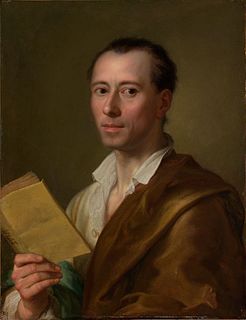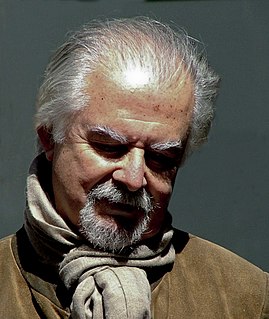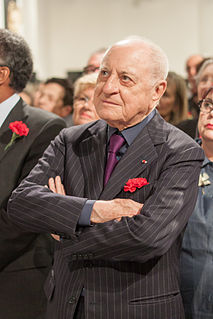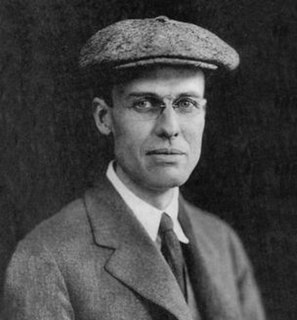A Quote by Jerry Saltz
'The Night Cafe' and 'The Starry Night' still emit such pathos, density, and intensity that they send shivers down the spine. Whether Van Gogh thought in color or felt with his intellect, the radical color, dynamic distortion, heart, soul, and part-by-part structure in these paintings make him a bridge to a new vision and the vision itself.
Related Quotes
Creativity is seeing what everyone else sees, but then thinking a new thought that has never been thought before and expressing it somehow. It could be with art, a sculpture, music or even in science. The difference, however, between scientific creativity and any other kind of creativity, is that no matter how long you wait, no one else will ever compose "Beethoven's Ninth Symphony" except for Beethoven. No matter what you do, no one else will paint Van Gogh's "Starry Night." Only Van Gogh could do that because it came from his creativity.
I once heard some idiot on the radio saying that all great art has suffering as its dominant theme, and that the greatest artists are only able to create because they suffer immensely in their own lives. What a bunch of bullshit. Look at Van Gogh's paintings: there's as much joy in them as there is pain. Suffering is only a single color, and by itself it's boring.
We've always had the sensibility that you work on the set, and you structure it, much like a play, where once you've got the lines down and blocking right, you freeze it, and then you go out and do what you're doing night after night. You want to structure something that has form and that builds the right dynamic from start to finish.
When van Gogh paints sunflowers, he reveals, or achieves, the vivid relation between himself, as man, and the sunflower, as sunflower, at that quick moment of time. His painting does not represent the sunflower itself. We shall never know what the sunflower itself is. And the camera will visualize the sunflower far more perfectly than van Gogh can.
Everybody's going to do the 3D slightly differently the same way that people are going to deal with color differently. Some movies downplay the color, some color is very vibrant. Color design is very different. We've got to think of 3D like color or like sound, as just part of the creative palette that we paint with and not some whole new thing that completely redefines the medium.
For years afterwards when Amory thought of Eleanor he seemed still to hear the wind sobbing around him and sending little chills into the places beside his heart. The night when they rode up the slope and watched the cold moon float through the clouds, he lost a further part of him that nothing could restore; and when he lost it he lost also the power of regretting it.




































